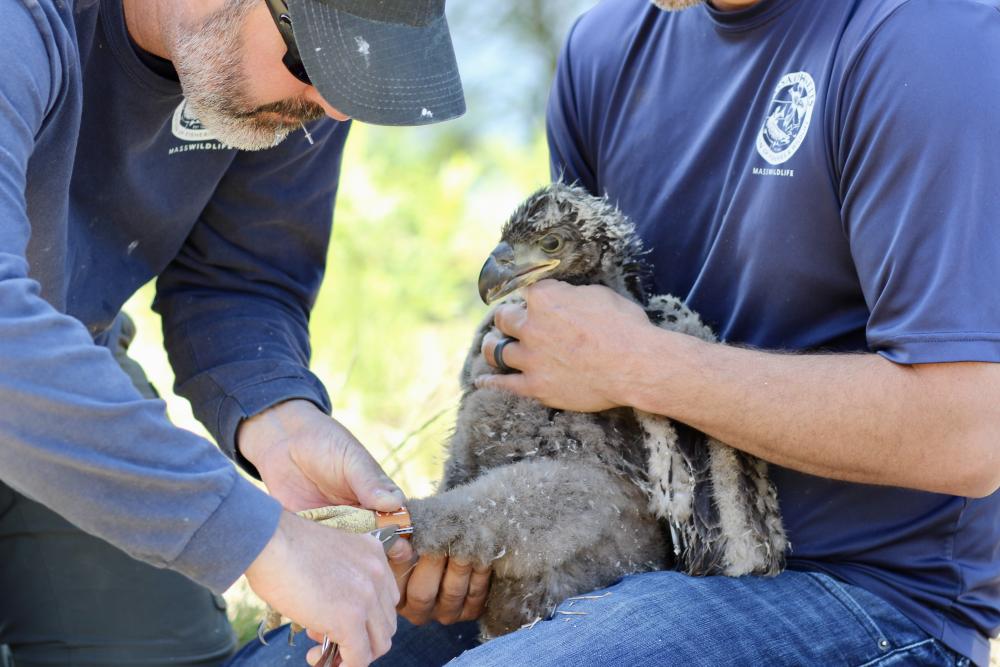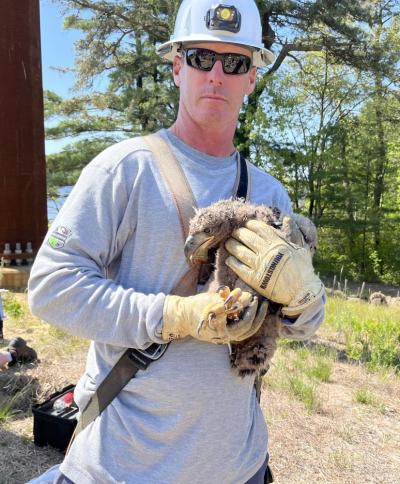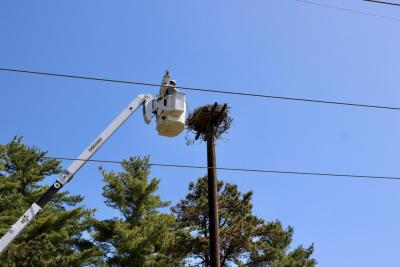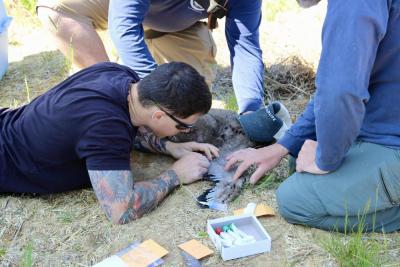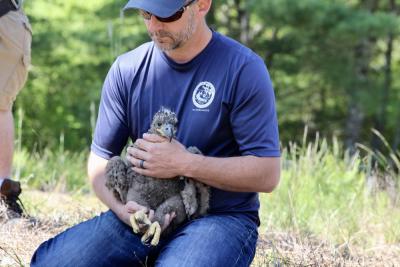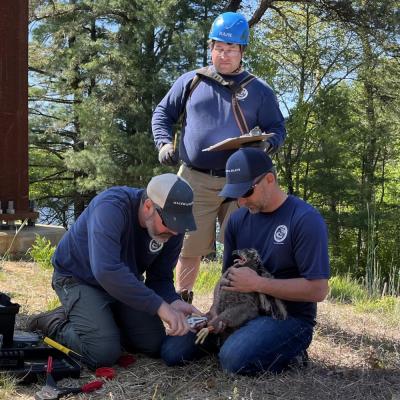MassWildlife, Eversource track baby bald eagles
The Massachusetts Division of Fisheries and Wildlife collaborated with Eversource to retrieve and put bands on two baby bald eagles in Wareham on Friday, May 26.
The bands, placed around birds’ ankles, are used to follow their migration patterns and quality of life from infancy to adulthood.
In order to protect the eagles, the exact location of the nest has not been disclosed.
Using an Eversource bucket truck, workers rose up to the nest and reached out to collect the two baby birds. After lowering them to the ground, each eagle received two bands: An orange band from the state and a metal one from the federal government. The adult eagle, which flew overhead while the babies were on the ground, was banded two years ago by MassWildlife in Fall River.
“It’s really cool that Eversource partners with us on this,” said MassWildlife Southeast District Supervisor Jason Zimmer.
Zimmer said the state used to band every bald eagle spotted in Massachusetts, but now that the population has recovered, only some eagles are banded.
Bald eagles are a success story among endangered species. They were on the brink of extinction in the 1970s due to the pesticide DDT, but a ban on DDT, in conjunction with recovery efforts, led to a steady increase in population. Bald eagles were delisted from the Endangered Species Act in 2007.
MassWildlife knows of 80 nesting pairs of bald eagles in the state.
Jesse Caney, a conservation biology graduate student at Antioch University in New Hampshire, drew blood from the eagles to test for PFAs, potentially harmful manmade chemicals that have been a focal point of opposition to solar energy development in Wareham.
Such chemicals would most likely enter eagles’ blood from the fish they eat or from food that’s been in contact with the soil, Caney said.
His graduate thesis, about the presence of such chemicals in eagle blood, is the first of its kind on the East Coast.



